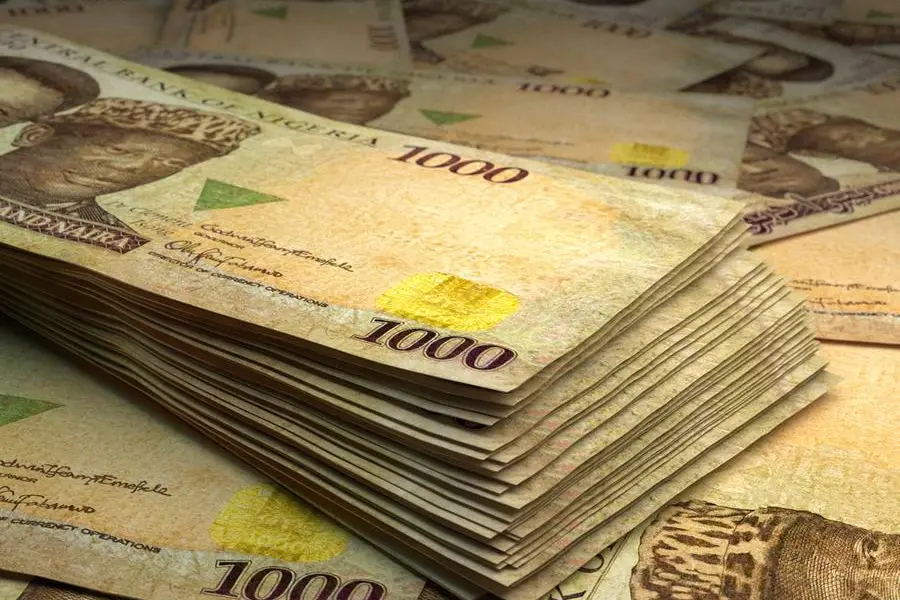PHOTO
THE World Trade Organisation (WTO) has hinted that $1.2 million Standards Trade Development Facility (STDF) initiative is expected to run for three years and will be backed by expected 30 percent counterpart funding from Nigerian Export Promotion Council (NEPC).
This is just the latest foreign trade data obtained from Nigeria’s Bureau of Statistics (NBS) revealed a notable surge of 37.21 percent year-on-year in the total merchandise trade, reaching N71.88 trillion in 2023, up from N52.39 trillion in 2022.
Meanwhile, during the launch of the STDF for Nigeria, spearheaded by the WTO, the World Bank and the International Trade Centre (ITC), Dr Ngonzi Okonjo-Iweala, Director-General of the WTO, underscored the paradoxical state of Nigeria’s agricultural sector.
Related PostsExpert suggests ways to strengthen marine, aviation insurance in NigeriaCISI Nigeria advocates infrastructure financingStakeholders raise concern as Nigeria’s inflation rate rises to 31.70%
Despite abundant arable land and a favourable climate for agriculture, Nigeria continues to be a substantial net importer of food, expending billions annually on imports that could be produced domestically.
The STDF programme is aimed at addressing trade related problems on the supply side to boost the exportation of the nation’s cowpeas and sesame products.
Agriculture, Nigeria’s largest single economic sector, accounts for 25.18 percent of GDP (in Q4 2023), with the most concentration on crop production, which accounts for 91 percent of output.
The country’s agricultural products fall into two main groups: food crops produced for home consumption and cash crops for exports. Prior to the Nigerian civil war, the country was largely self-sufficient in food production and could boast of a significant number of cash crops for exports.
Nigeria’s agricultural exports have dwindled in the last few decades and the positive story around agriculture started to fade after the discovery of crude oil in the early 60s.
In recent years, Nigeria has encountered challenges with the rejection of its agricultural products due to non-compliance with international sanitary and phytosanitary (SPS) requirements.
These include issues such as elevated pesticide residue levels exceeding maximum global limits, concerns regarding sanitary and phytosanitary standards and deficiencies in packaging and labeling, among others.
According to analysts from CSL research, the primary goal of the STDF initiative is to enforce international safety and quality standards and certification for Nigeria’s exports of sesame and cowpeas. It is essential for Nigeria to adopt global ethical standards to enable participation in the lucrative cowpea and sesame export markets, which were valued at $7.2 billion in 2023 and $7.35 billion in 2022, respectively globally.
Given the urgent need to diversify the economy and generate much-needed foreign exchange, implementing these standards holds paramount importance.
However, in 2023, total exports slightly surpassed total imports, standing at N35.96 trillion and N35.92 trillion, respectively.
Consequently, Nigeria reported a positive trade balance of N2.90 billion, marking a sharp 99.8 percent year-on-year decline from the previous year’s N1.21 trillion.
Nigeria’s low trade balance of N2.90 billion in 2023 comes from the country’s weak position in trade earnings from minimal trade engagements from which Nigeria recorded a slight increase in total exports earnings amid rising imports during the period.
Additionally, it can be said that the country’s overreliance on and escalating demand for foreign goods, influenced by economic conditions and a significant exchange rate depreciation of over 50 percent in 2023, contributed to the modest trade balance in 2023.
On a quarterly analysis, the Nigeria Bureau of Statistics report for the fourth quarter of 2023 indicates a substantial increase of 43 percent quarter-on-quarter in the total merchandise trade value, reaching N26.80 trillion from N18.80 trillion reported in the prior quarter.
Despite this overall surge, Nigeria faced a trade deficit of N1.42 trillion during this quarter, reflecting a reliance on imported consumer goods than it exported during the period.
Copyright © 2022 Nigerian Tribune Provided by SyndiGate Media Inc. (Syndigate.info).





















